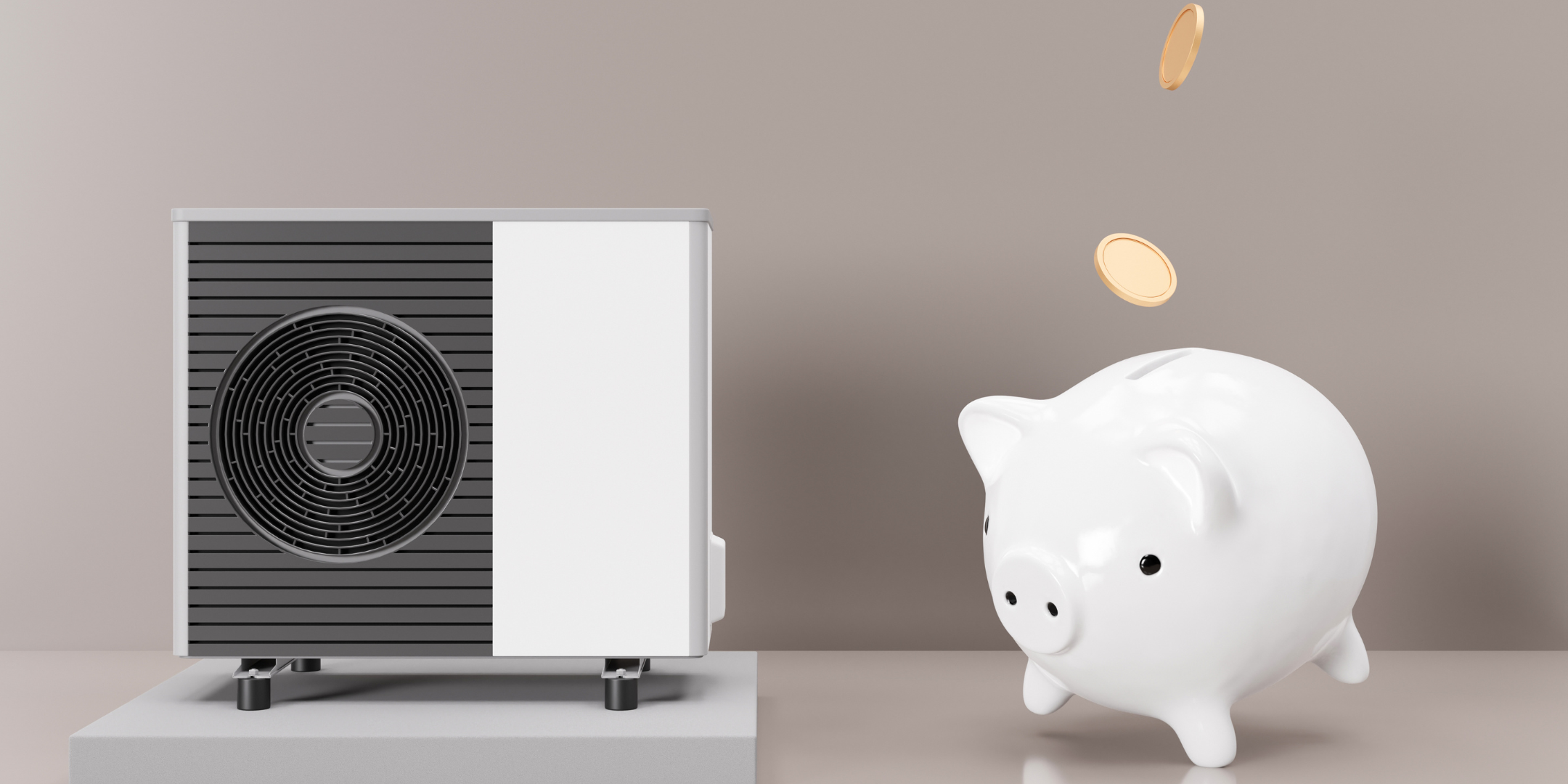3 Top Qualifying HVAC Systems Under the Inflation Reduction Act (IRA)
September 12th, 2024
6 min read
By Daphne Hunt

If you're feeling confused about which HVAC system qualifies for tax credits, you're not alone. With so many options and incentives out there, it’s hard to know which system will give you the best savings. You’re eager to lower your energy bills and take advantage of the Inflation Reduction Act (IRA), but figuring out which system meets the requirements can feel overwhelming. This uncertainty can cause hesitation when you’re ready to start saving money.
We’ve been helping homeowners like you for over 16 years, guiding them through the complexities of HVAC system choices, installations, and incentives. We understand the frustration that comes with not knowing where to start, and we have the expertise to clear up the confusion. We stay up-to-date on the latest energy efficiency standards and know exactly which systems qualify for the best tax credits, so you don’t have to.
By the end of this article, you’ll have a clear understanding of which HVAC systems qualify for the Inflation Reduction Act credits, and how to get the most value from your investment.
Air-Source Heat Pumps

Air-source heat pumps are popular for their ability to both heat and cool your home efficiently. These systems can qualify for a $2,000 tax credit under the IRA when they meet certain SEER2 and HSPF2 efficiency standards.
Mitsubishi Electric Hyper-Heating H2i Series
The Mitsubishi Electric Hyper-Heating H2i Series is specifically designed for colder climates, making it an ideal choice for homeowners who need efficient heating during freezing temperatures. This system can maintain heating performance in conditions as low as -13°F, which is rare for many heat pumps. The H2i technology ensures that your home stays warm even in extreme cold without relying on inefficient backup heating systems like electric resistance or gas.
Why it qualifies
In addition to its robust performance, this model qualifies for the maximum tax credit under the Inflation Reduction Act (IRA) because it exceeds the energy efficiency standards required to earn rebates. With high SEER2 (Seasonal Energy Efficiency Ratio) and HSPF2 (Heating Seasonal Performance Factor) ratings, it significantly reduces energy consumption, ensuring both energy savings and environmental benefits.
Efficiency
- Up to 20 SEER2: This high efficiency rating ensures that the unit cools your home efficiently, leading to lower energy bills during summer months.
- Up to 10 HSPF2: The Heating Seasonal Performance Factor measures heating efficiency. With a rating of 10, this system offers excellent heating efficiency, particularly in cold climates, making it one of the most energy-efficient models on the market.
Key Features
- Hyper-Heating Technology: This proprietary technology allows the system to maintain performance even in freezing temperatures. Traditional heat pumps struggle to provide heat when temperatures drop, but the H2i Series overcomes this issue.
- Ductless Design: This system does not require traditional ductwork, which makes it an excellent option for older homes or renovations. Installation is more flexible and cost-effective, and it avoids the energy loss often associated with ducted systems.
- Ultra-Quiet Operation: Designed for whisper-quiet operation, the system ensures that comfort doesn’t come at the expense of noise, making it perfect for both indoor and outdoor use without disturbing the home’s environment.
General Price Range
The Mitsubishi Hyper-Heating H2i Series typically costs between $4,000 and $10,000 depending on the size of the unit and the number of zones required for the home. Installation costs can add $2,000 to $5,000 depending on complexity and location, leading to a total installed cost of around $6,000 to $15,000. However, with the Inflation Reduction Act’s tax credit of up to $2,000, homeowners can significantly reduce the upfront cost.
Geothermal Heat Pumps

Geothermal heat pumps use the earth’s natural energy to provide heating and cooling, making them one of the most energy-efficient HVAC systems available. These systems are eligible for a 30% tax credit with no upper limit under the IRA.
Bosch Greensource CDi Series SM
The Bosch Greensource CDi Series SM is one of the most energy-efficient geothermal heat pump systems on the market, offering long-term savings and sustainability for homeowners looking to significantly reduce their energy bills. Here’s why it’s an excellent choice for those qualifying for the Inflation Reduction Act (IRA) tax credits:
Why It Qualifies
This system is ENERGY STAR certified, meaning it meets the strict efficiency guidelines set by the Environmental Protection Agency (EPA). The system qualifies for a 30% federal tax credit under the IRA’s Residential Clean Energy Credit, making it a smart investment for homeowners wanting to capitalize on financial incentives while drastically improving energy efficiency.
Efficiency
The Bosch Greensource CDi Series SM boasts Energy Efficiency Ratio (EER) ratings of up to 32, which places it among the most efficient geothermal systems on the market. This high EER means it provides superior heating and cooling performance while using significantly less energy than traditional HVAC systems. For perspective, the EER ratings of standard air-source heat pumps often range between 13 and 18, making Bosch’s model much more efficient in comparison
Features
- Quiet Operation: The Bosch Greensource CDi Series SM is engineered for minimal noise, allowing for comfortable, quiet operation in your home.
- Advanced Comfort Control: It comes equipped with variable-speed technology, enabling precise temperature control and ensuring optimal indoor comfort year-round.
- Minimal Maintenance: Geothermal systems like this one generally require less maintenance than traditional HVAC systems. Once installed, the system is durable and long-lasting, with fewer moving parts that could break down.
General Price Points
The upfront cost of installing a geothermal system like the Bosch Greensource CDi Series SM can range from $18,000 to $30,000, depending on factors like the size of your home, local labor costs, and whether any existing ductwork is in place. While the initial investment is higher than that of air-source heat pumps or standard HVAC systems, the 30% tax credit under the IRA can reduce the total cost by several thousand dollars.
Split System Air Conditioners

Upgrading to an energy-efficient air conditioner can qualify you for up to $600 in tax credits under the IRA, provided the unit meets the minimum efficiency standards (16 SEER22 and 12 EER for split systems).
Trane XV20i TruComfort
The Trane XV20i TruComfort is one of the most efficient air conditioning systems on the market, offering both reliability and significant energy savings. This model excels in energy performance and qualifies for Inflation Reduction Act (IRA) tax credits, making it an excellent choice for homeowners looking to save on both upfront and long-term energy costs.
Why It Qualifies
The Trane XV20i is designed to exceed the energy efficiency thresholds required to claim tax credits under the IRA. Its SEER2 rating of up to 22 places it well above the minimum standards needed to qualify for the 30% tax credit, up to $600. The high efficiency ensures homeowners benefit from lower utility bills while maintaining consistent comfort year-round.
Efficiency
Up to 22 SEER2: The Seasonal Energy Efficiency Ratio (SEER) measures how effectively the system converts electricity into cooling. With a SEER2 of 22, the Trane XV20i ranks as one of the most energy-efficient systems available, outperforming the minimum requirements for federal tax credits.
Key Features
- Variable-Speed Compressor: The TruComfort™ system automatically adjusts its output based on the cooling needs of your home. This allows it to run at slower speeds during milder weather and higher speeds when necessary, resulting in precise temperature control, better energy efficiency, and quieter operation.
- Smart Thermostat Integration: The system is compatible with Trane's ComfortLink™ II thermostat, which allows you to control the system remotely, monitor energy usage, and even schedule temperature settings to further optimize savings.
- Quiet Operation: Designed to run quietly, the XV20i ensures that even when the system is working hard to cool your home, it won’t disrupt your peace. It operates at noise levels as low as 55 dB.
- Advanced Humidity Control: The variable-speed compressor not only cools your home but also provides superior dehumidification, making your home more comfortable, especially in humid climates.
General Price Range
The Trane XV20i typically costs between $16,000 and $20,000, including installation. The price may vary depending on factors such as the size of your home, the complexity of installation, and the need for additional ductwork or electrical upgrades. However, with the IRA tax credits, homeowners can save up to $600 on the installation.
How to Claim Your IRA Tax Credit
If you choose one of these qualifying systems, claiming your tax credit is simple:
- Keep records: Make sure to obtain and save your installation receipts, along with a manufacturer’s certification statement that verifies the system’s energy efficiency.
- File the necessary forms: You’ll need to complete IRS Form 5695 when filing your federal tax return to claim the credit
Making the HVAC Upgrade
When you started reading, you were likely unsure about which HVAC system qualifies for the best tax credits and savings. Now, with a detailed understanding of the Mitsubishi Electric Hyper-Heating H2i series and other top HVAC options under the Inflation Reduction Act (IRA), you’re ready to make an informed decision. This system excels in energy efficiency, cold-weather performance, and provides the opportunity for substantial rebates.
the Mitsubishi Electric Hyper-Heating H2i series and other top HVAC options under the Inflation Reduction Act (IRA), you’re ready to make an informed decision. This system excels in energy efficiency, cold-weather performance, and provides the opportunity for substantial rebates.
Take advantage of the IRA tax credits and rebates to make your investment more affordable. Whether it’s the Hyper-Heating H2i or another qualifying system, upgrading now can ensure long-term savings and a more comfortable home.
If you’re still feeling unsure about how to move forward, our expert HVAC technicians can guide you through the process of selecting and installing the best system for your needs. Explore the full review of the Mitsubishi Electric Hyper-Heating H2i series to learn more and secure the best options for your home and budget.
Daphne Hunt holds a bachelor's degree in English and Mass Communication and has a lifelong passion for writing. She thrives on using her skills to craft compelling pieces that inform, inspire, and connect with readers.
Topics:

